"The Idea Was To Integrate The Big City Feeling In The Middle Of A Beijing Hutong"#
Belgian-born Ignace Lecleir, the owner of Beijing’s newest fine dining restaurant,
Temple Restaurant Beijing#
(TRB), is trained and equipped with the necessary tools to create a welcome culinary oasis in the Chinese capital. Trained in hotel management, Lecleir has worked in some of the world's top dining meccas, from London to Los Angeles, San Francisco to New York, and has quite literally traveled the world as a sommelier for a prestigious cruise line. Initially believing New York was where he wanted to finally call home, Lecleir was given the opportunity to open Daniel Boulud’s newest project in Beijing, Maison Boulud. Too good of an opportunity to pass up, Lecleir moved to Beijing with little knowledge of China to open the respected Boulud restaurant in the old American embassy building in Qian’men. After two and a half years, Lecleir decided it was time to venture off with his own project, something that would allow him to have full creative control.
Having become enchanted by a 600-year-old temple during his weekly jogs around the area, Lecleir set to work building what would become Temple Restaurant Beijing, working hard to renovate the ancient space, assemble and train a service-oriented team and develop a superb menu based upon local and organic ingredients. Only open for the past five and a half months, TRB sits in an old Beijing hutong near the northeast corner of the Forbidden City. Recently, Jing Daily Beijing correspondent Zandie Brockett sat down with Ignace Lecleir to discuss the process of creating and operating a fine dining venue in Beijing, "pulling things together" for local and expat tastes, and why he's so enchanted with spicy food.
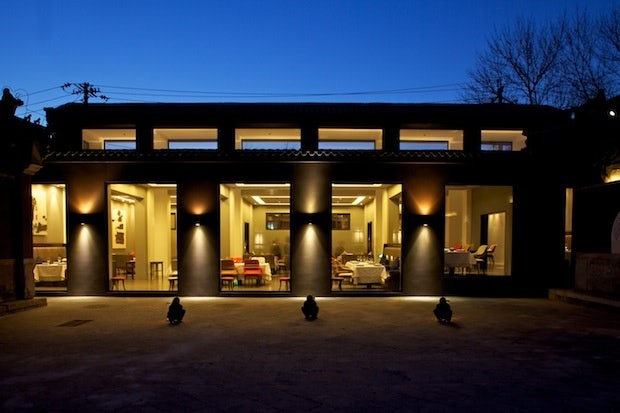
Zandie Brockett (ZB): What inspired you to create the restaurant in this atmosphere, and how has influenced your menu?#
Ignace Lecleir (IL)#
: Trying to set up a restaurant in these surroundings is difficult because [the building's] very old. The most important thing for me was trying to find a way to respect the Chinese culture without doing too much damage. We opened up the space as much as possible, so that it pulls your attention outside. Inside the restaurant, we tried to create an environment that was very clean and slick. Almost like the big city feeling of New York. The idea was to integrate the big city feeling in the middle of a Beijing hutong.
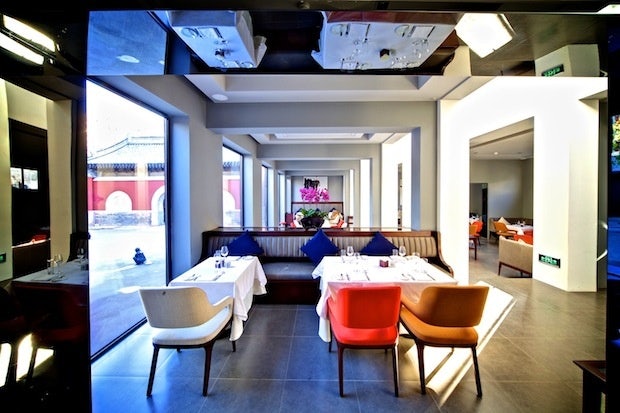
ZB: Tell me more about your menu and your head chef.#
IL#
: We have a culinary team composed of three Chinese chefs and one gentleman from London, whose role is [to be] the facilitator and to give inspiration to the team. We also have a Chinese pastry chef from the south of China. She speaks no English, but rather French. We try as much [as possible] to support the local community, and so we work with local farmers and try to use organic ingredients. If we feel that we cannot find the right ingredients, then we look abroad. In that case, we still try to stay as close as possible. The most exciting thing is to see how the local team is coming to understand flavors and pull things together.
"Pulling things together" was an understatement, for the twelve-course lunch I was served highlighted some truly innovative combinations. Whether that meant fresh baked breads embedded with squid ink or bacon, fresh Boston lobster served with foie gras and a side lobster salad, or roasted young pigeon with cauliflower, green bean purée and crisped bacon, the plethora of flavors and delicately crafted presentation proved an excellent introduction to TRB's multinational culinary team.
A personal favorite was the truffled soup with sliced black truffle and tofu-like mushroom garnish; the creamy purée was warm and rich with earthy flavors. Further, an olive oil-poached black cod served with saffron potatoes quite literally melted in my mouth. For those who prefer the last course first, a series of desserts that could please even the most avid sweet tooth emerged from the kitchen. Starting with a perfectly creamy and delicately iced cheesecake topped with jammed passion fruit, next came three quaint trays filled with chocolate truffles, jellied raspberry candies, white chocolate fondant, plain, citrus and rose marshmallows, and finally a deep fried fondant to finish the meal, served with a shot of espresso.
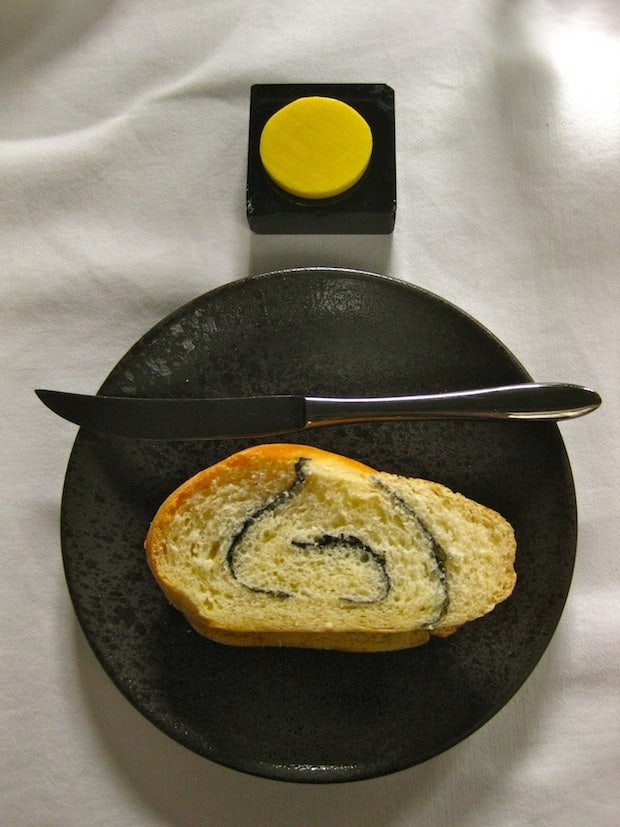
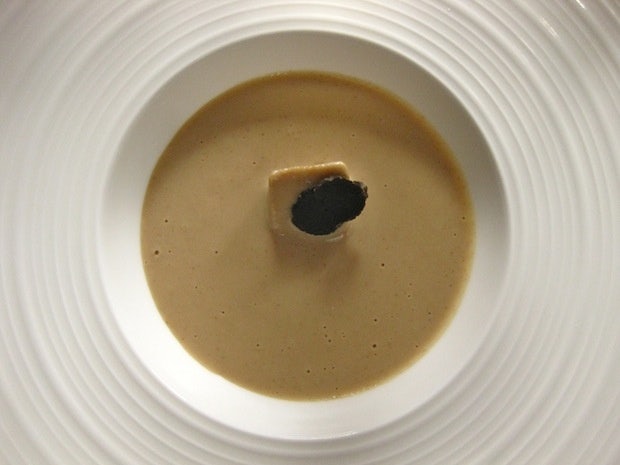
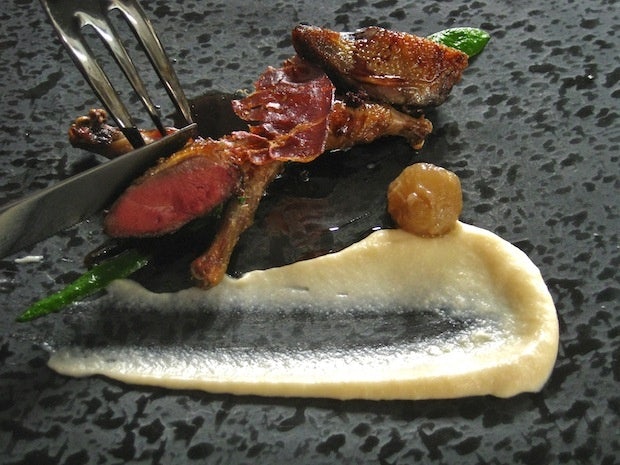
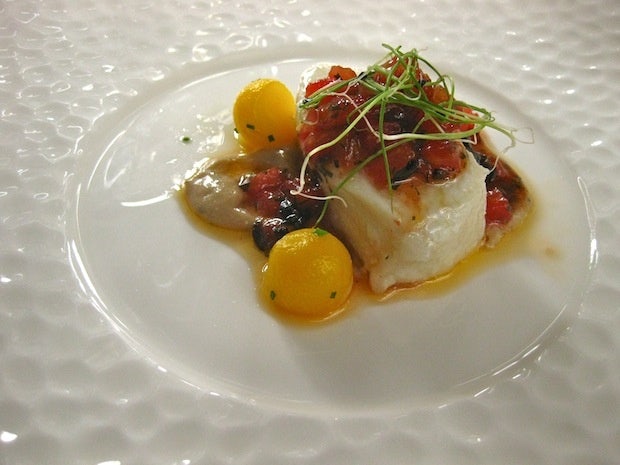
The meal was paired with a variety of predominately white wines ranging in region, body, and fruitiness. TRB's knowledgeable sommelier clearly spotlighted the restaurant's large selection of wines, which Lecleir said range in value from 280 yuan (US$44) to 100,000 yuan ($15,713). As Lecleir put it, “We have different price points in our menu and in our wine list, so that you can come and find an interesting bottle of wine and feel like your like you’re having a good time. As from the service perspective, you will be treated the same whether coming for a special occasion or just coming to enjoy a Western meal.”
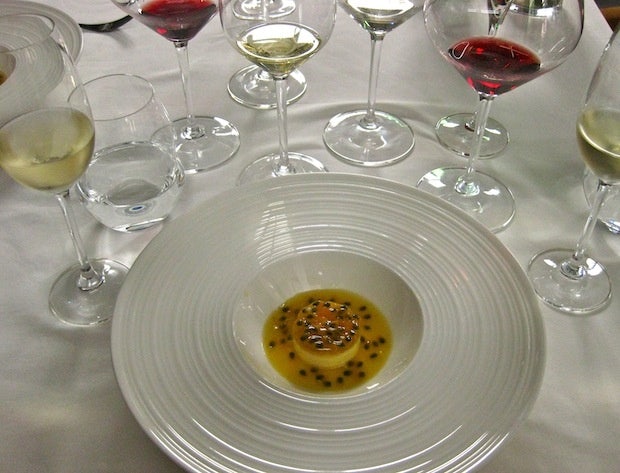
Beyond TRB’s extensive wine list and well-produced contemporary European fare, I found the service to be the restaurant’s strongest element. Given that new restaurants often take “some time to tango,” as Lecleir says, TRB’s waitstaff was surprisingly attentive and well-equipped to provide their customers a comfortable meal. Despite many TRB staff members coming from little to no service background, Lecleir personally works to train them for two hours each day. It’s no wonder the service mimics that found in a five-star hotel. “My goal is that they make the right decisions without me telling them what to do," Lecleir told me. "That's why we train [the staff] so much, because I feel that service should be very spontaneous and not pre-programmed.
"When the moment is there, you try to make an impact and understand what the customer wants; It's really about emotions, about how you personally feel and how the other person feels.”
Lecleir clearly has put his heart into building and nurturing TRB, yet the restaurateur manages to enjoy other food-related activities on his time away from the restaurant.
ZB: When you’re at home, what do you enjoy cooking for yourself?#
IL#
: I usually like simple things. When I cook at home, I like to go to Sanyuanli market. I love that feeling of going to a market and going to look at and feel the produce. I never have a plan, I just walk in, get inspired, see what’s fresh and just go home and try to put things together.
ZB: What is your favorite kind of cuisine?#
IL#
: I’m from Belgium, so we don't have any spicy food. So when I first tasted Sichuan food, it was a very, very new experience. I have really taken a liking to it, especially in this kind of weather, when it's a little rainy and during the winter. Actually, I crave it; I have to have it.
ZB: What is your favorite Chinese restaurant in Beijing?#
IL:#
It’s actually down the street. It's the state house representative restaurant for Chengdu. (Chuan Ban 川办餐厅 -- JD)
Temple Restaurant Beijing#
23 Shatan Beijie, off WuSi DaJie,
Dongcheng District, Beijing 100009
北京市東城區五四大街以北,沙滩北街23号 100009
Tel: 010-84002232
Appetizers: 90-168 yuan (US$14-26)
Entrees: 168-290 yuan ($26-46)
Desserts: 68 yuan ($11)